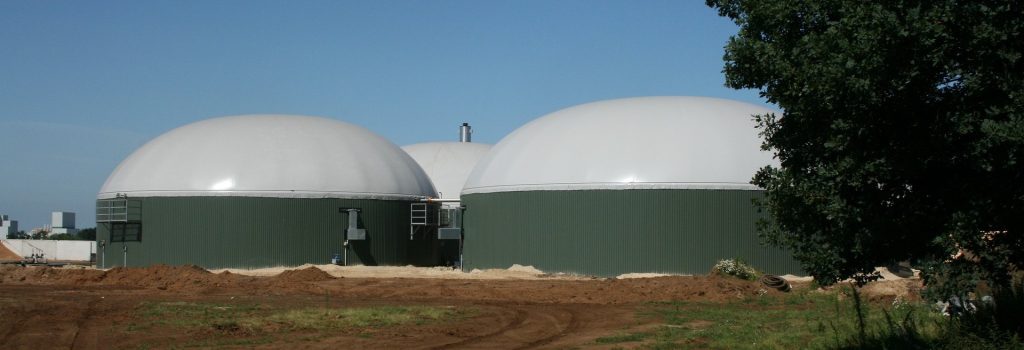Biofuels are renewable fuels made from various plant materials, collectively known as biomass. These fuels can be blended with petroleum fuels or used alone, and are cleaner-burning than pure gasoline and diesel fuel. Examples of biofuels include ethanol, biodiesel, renewable diesel, and renewable natural gas.
Also check out Incentives and Funding for each of the biofuels below.
Jump to:
Ethanol
Biodiesel
Renewable Natural Gas
Renewable Diesel
Ethanol

Current ethanol production is primarily from the starch in kernels of field corn.
Ethanol is a renewable, alcohol-based alternative fuel produced by fermenting and distilling plant-based materials known as biomass. Nearly all ethanol produced in the world is derived from starch- and sugar-based feedstocks including corn, barley, and wheat. Ethanol is commonly added to gasoline to increase octane ratings and improve emissions quality, such as in the common blend E10 (10% ethanol and 90% gasoline). More than 98% of gasoline sold in the U.S. contains some ethanol. E85, a blend of 85% ethanol and 15% gasoline, and blends containing even higher concentrations of ethanol such as E95, qualify as alternative fuels under the Energy Policy Act of 1992 (EPAct). Vehicles that run on E85 are called flexible fuel vehicles (FFVs) and are offered by several vehicle manufacturers.
Dependent upon the type of feedstock used, lifecycle greenhouse gas (GHG) emissions of ethanol are between 34% and 108% lower than gasoline or diesel. Emissions reductions credited to ethanol result from the capture of carbon dioxide that occurs when the feedstock crop is grown, which offset a portion of emissions created during combustion.
Check out E85 stations in the Tulsa area using the Station Locator below!
Ethanol Links
- Visit this page for the basics about ethanol as a fuel from the Department of Energy’s Alternative Fuel Data Center
- Growth Energy works to advance E85-capable flexible fuel vehicles. Visit the link for more information
Biodiesel

Currently, U.S. biodiesel is primarily produced using oil from soybeans such as these or from recycled restaurant cooking oil.
Biodiesel is manufactured by chemically reacting vegetable oils, recycled cooking grease, or animal fats with alcohol. Today’s biodiesel is primarily made from domestically produced soybean oil, which has extremely low sulfur content. Cooking oil and animal fat biodiesel is also produced with very low sulfur.
When biodiesel is blended with petroleum diesel, it produces a fuel that is compatible with diesel engines, displaces imported petroleum, and reduces harmful emissions. Blends like B2 (2% biodiesel and 98% diesel) and B5 (5% biodiesel and 95% diesel) are becoming increasingly common as drivers become more aware of the many benefits. Biodiesel blends of 20% biodiesel or more are also widely available.
As long as the biodiesel used for blending meets ASTM D6751 standards, low-level biodiesel blends such as B2 and B5 can be used safely in any compression-ignition engine that is designed to be operated on diesel fuel. This may include diesel-powered cars, trucks, tractors, boats, and electrical generators.
Check out biodiesel stations in the Tulsa area using the Station Locator below!
Biodiesel Links
- Visit the page for information from the U.S. Department of Energy’s Alternative Fuel Data Center
- FuelEconomy.gov offers biodiesel information from the U.S. Department of Energy’s fuel economy website
- National Biodiesel Board is the national trade association representing biodiesel. Visit the link to learn more about their mission and engagement
- Biodiesel.org is serves as an information hub on behalf of the National Biodiesel Board
Renewable Natural Gas

RNG is created by capturing methane released by landfills or through anaerobic digestion of
animal manure or solids removed in wastewater treatment processes.
Renewable natural gas (RNG), also known as biomethane, is produced from organic materials—such as waste from landfills and livestock—through anaerobic digestion and is considered an advanced biofuel under the Renewable Fuel Standard. RNG is chemically identical to fossil-derived conventional natural gas, so it can be channeled directly through existing natural gas pipelines and can be compressed or liquified for use as vehicle fuel without any alteration to vehicle or fueling systems. RNG is readily available and cost comparable to conventional natural gas.
RNG has the greatest greenhouse gas (GHG) emissions benefits of all vehicle fuels! According to Argonne National Laboratory’s (ANL) GREET modeling tool, average greenhouse gas emissions for RNG made from various feedstocks (landfill gas, wastewater, animal manure and food waste) are approximately 150% lower than ultra-low-sulfur diesel (ULSD) and 145% lower than fossil natural gas. ANL shows the greatest emissions reductions coming from RNG made from food waste, at 196% and 191% lower than ULSD and fossil natural gas, respectively.
RNG Links
- Visit the page for more information from the U.S. Department of Energy’s Alternative Fuel Data Center
- EPA provides further reading, resources, and tools related to renewable natural gas
- Energy Vision offers RNG case studies for readers to explore lessons learned
Renewable Diesel
Renewable diesel is a drop-in alternative to petroleum diesel produced using biomass waste or residue, usually vegetable oil, animal fat, waste cooking oil, and algal oil. Renewable diesel is chemically identical to conventional diesel fuel and can be put directly into an engine, unlike biodiesel which is blended with petroleum diesel.
Renewable diesel offers benefits of lower carbon emissions and reduced maintenance costs. According to the EPA, renewable diesel produced from distillers sorghum oil is 63% less carbon intensive than petroleum diesel.